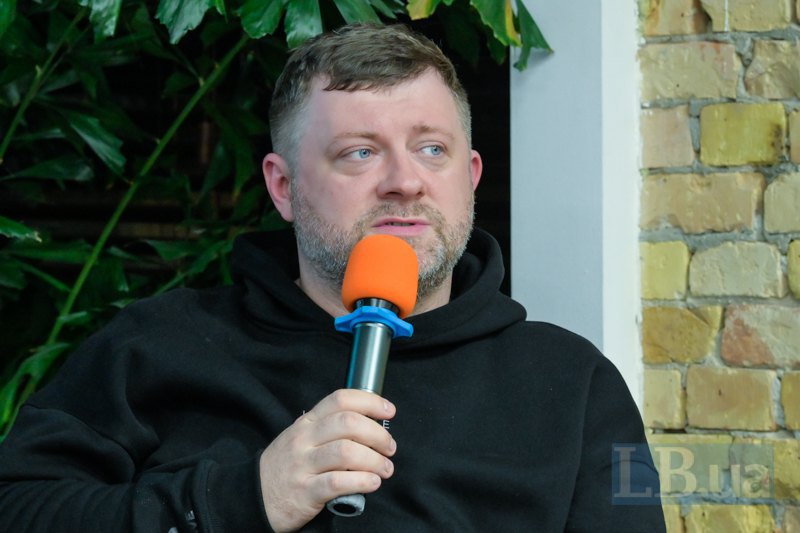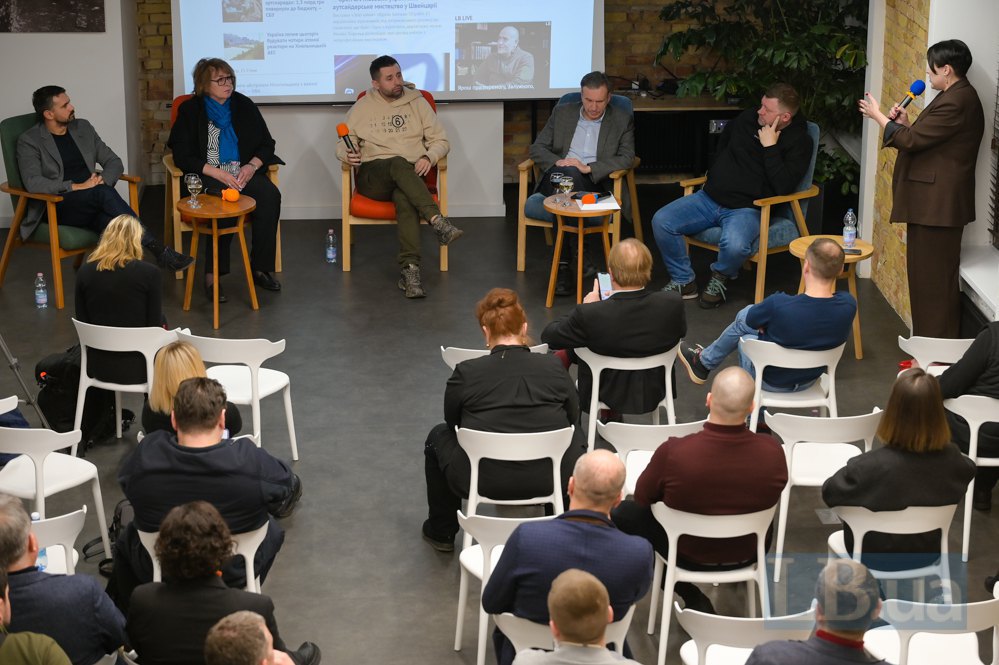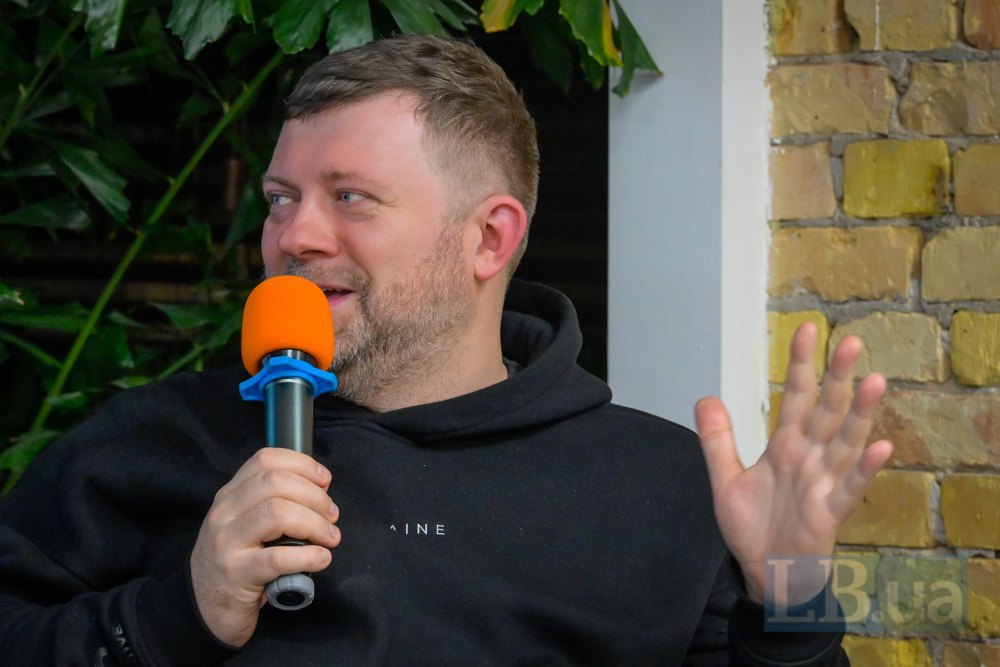
During the war, the Verkhovna Rada of Ukraine [Ukrainian parliament] faced a new challenge: it had to extend its work (the term of the Verkhovna Rada of the IX convocation ended in October 2023, but a scheduled election could not be held due to the war - ed. note) infinitely. However, there is another serious problem, says Davyd Arakhamiya, since too many MPs want to give up their seats.
"There is no unity within the parliament. This is an illusion. It existed a year and a half ago. Now it is gone. A major crisis is coming. I alone have 17 applications for resignation in my faction. That is, we already have 401 people in parliament. We will let one more go for medical reasons. And 226 votes out of 400 are very difficult to collect, to be honest.
I know that there are also people in other factions who want to leave. We have decided for ourselves that we will not support resignations. Only for medical reasons. Otherwise, there are no more conditions under which we will vote for the resignation of mandates in order to keep the parliament legitimate," the leader of the Servant faction said.
He also stressed that last year's speculations about the possibility of elections had further divided the political forces.
"Fortunately, we had the good sense to hold the Monet Dialogues and, under the leadership of Pat Cox, sign a declaration by all political parties and factions that elections cannot be held during the war and will not be held. This calmed things down a bit, but, frankly, Pandora's box is already open. The more we say that there will be no elections, the more they (opponents - ed. note) suspect us of simply lying to keep them unprepared and plotting something. And this misunderstanding is deepening," Arakhamiya added.
First deputy speaker Oleksandr Korniyenko noted that the work on EU accession has shown that Ukrainian politicians can work not only in political or local interests, but also for a great goal. However, the parliament faces many important tasks that will be much more difficult.

"The problem is that there will not be seven conditionals (as was the case with the requirements for joining the EU - ed. note) because there are no conditionals for NATO, it is a very political process. There is a requirement from the partners: if you want to join NATO, you have to join the EU. This is formulated very primitively, but there is such a requirement. There is no separate track for NATO. There are three laws, some sectoral ones in the field of national security, and technical things," Korniyenko said.
The IMF and World Bank packages are on the agenda, he adds, "but they don't excite MPs as much as the seven conditionals, because they are very specific, there is a lot of room for manipulation, amendments, and discussions that are useful or not". He used the example of the draft law on corporate governance to illustrate how laws are being delayed.
"One of the requirements from the partners, which was also mentioned in the case of the seven conditionals, is always mentioned by the IMF, and now the World Bank will include it in the project for the next tranche, is a draft law on corporate governance. The so-called 5599.
Based on the number five, we can understand that it was registered back in 2020, passed the first reading, and then, strangely, received 2,500 amendments from MPs affiliated with financial groups (I'm being tolerant). Because introducing relevant, modern corporate governance in the public sector, in line with the standards of the OSCD and other organisations, is beneficial only to the state, partners and, unfortunately, not to financial groups involved in corporate governance.
A lot of time has passed since then, the approach at Ukrnafta has fundamentally changed, and we see how much money it can bring to the country when the people who tried to manage it are now elsewhere. But turning this (draft law 5599 - ed. note) into the law that our partners demand will take more than a week of our work - both behind the scenes and then in the parliamentary hall for several hours, and maybe several meetings," he said.
The process is further complicated by a bunch of technical bills that only three people in the room are experts in, Korniyenko added. But the most important thing that slows down the process is the imperfect regulations, which provide for about two months to make a decision, as it must pass the first reading, second reading, amendments, committee opinion, etc. And in 99% of cases, the regulations are violated to speed up the process.

"We did not violate the regulations only with the laws on mobilisation and land to prevent them from being challenged in the Constitutional Court due to violations of the adoption procedure. In other cases, we either lost one day, or did not wait for the committee's opinion, or something else," Korniyenko said.
"Our respected consultant Pat Cox, who is helping us to reform the parliament, said back in 2016 that we have the parliament of the Soviet Union. At this pace and with these regulations, we will be reforming it for the rest of our lives. Every convocation. We don't have fast tracks, everything is very drawn out. And, unfortunately, we were unable to remove these blocks in 2019 because we listened to our party colleagues, who then ceased to be party members," he added. Korniyenko is confident that the parliament of the 10th convocation will start its work with internal reforms.
Nevertheless, he hopes that in 2024 there will be more parliamentary sessions and lawmakers will return to the conventional calendar.
"Last year we met about 48 times, this year I think it will be 70. Maybe we'll go back to something like a calendar, we're discussing this idea. When we know in advance which weeks we work and which we don't. Because when there is a need to get together, someone has a trip planned, someone has a PACE session, etc. Perhaps we will sort this out," he said.
He also believes that the work of the Verkhovna Rada should be made more public.
"My personal opinion is that we still need to think about the coverage. One of the problems of distrust (in parliament - ed.note) is that the parliament is invisible.
Or it is visible clandestinely through Oleksiy Honcharenko's TikTok.
But there is a security component that we are trying to solve. We are like prisoners in a dungeon, sitting in a perimeter that we do not control. The checkpoints are not even supervised by the State Guard Department, but by a three-part interagency group. Even I sometimes find it difficult to let a person through - you can't just call them, you have to write a letter. That's why I see that there will probably be some progress in coverage," Korniyenko says.

This may make it easier for representatives of the public or specialised organisations to physically access the committees to discuss draft laws.
"All of this together will provide some kind of tuning that will help this overripe parliament. This is the first parliament in history that has overstayed its welcome, let's be honest... People are demanding: let's disband them now.
It's a tease for society that the parliament is sitting out. This is, of course, superimposed by Russian propaganda, which says that all MPs should be shot and sent to the trenches... And the generic and non-generic traumas of Ukrainian parliamentarism - the inability to reach an agreement, distrust, etc. - are also adding up," he noted.
"However, the prospects that the parliament can rely on in this difficult situation include an understanding of the inevitability of the fact that we will have to work for who knows how long - a year, two years, we do not know. And in a situation where the headquarters are buzzing with activity, even though 80% of the population is against the elections, we still need to find some common ground," Korniyenko concluded.








